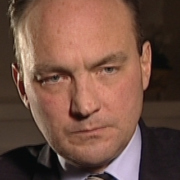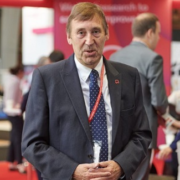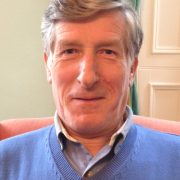Ambassador and Board of Trustees

Platelet Society Ambassador: Lieutenant Colonel Crispin Black MBE MPhil
The Platelet Society is pleased to announce the appointment of Lieutenant Colonel Crispin Black MBE MPhil as our Ambassador.
Crispin is a world-renowned journalist, author, intelligence consultant and former Welsh Guard officer. In 2007, Crispin was diagnosed with idiopathic thrombocytopenic purpura (ITP); since his diagnosis, he has undertaken numerous public engagement events about his ITP journey, and has shared his experiences and challenges of living with ITP at various conferences, and through the media.
Crispin is no stranger to public speaking, as a journalist, he has vast radio and TV experience, and is a frequent contributor to major British newspapers. These skills will be of great benefit for supporting the Society, by attending specific media briefing events and providing interviews to the press. To this end, Crispin will help the Society promote the charity to the public and to potential donors, thus building on the awareness of the charity’s purpose and fundraising activities.
We welcome Crispin to the Society and look forward to having him as an ambassador representing us.
The Board of Trustees
The Platelet Society is privileged to have six trustees – each with very different professional backgrounds – able to share their experience and knowledge for the benefit of the charity and those suffering from Platelet related diseases.

Chair of Trustees: Professor Jeremy Pearson, FMedSci, MBE

Maryam Samina

Crispian Strachan CBE QPM

Professor Alison Goodall

Professor Steve Watson
The group is recognised for the identification of the major signalling receptor for collagen receptor on platelets, the GPVI-FcR gamma-chain complex, and the C-type lectin receptor, which plays a key role in lymphatic development. Steve is head of the Vascular Inflammation, Thrombosis and Angiogenesis (VITA) grouping in the Section of Cardiovascular Sciences. Steve was the 2006 winner of the Nature/Nesta mid-career award for creative mentoring. Steve Watson is a leading member of the NIHR SRMRC.

Dr Gillian Lowe

Operations: Gayle Halford
Past Trustees
Dr Paul Harrison – University of Birmingham (2017 -20)
- Dr Sarah Jones – Manchester Metropolitan University (2019-22)
- Dr Matthew Harper – University of Cambridge (2019-22)
